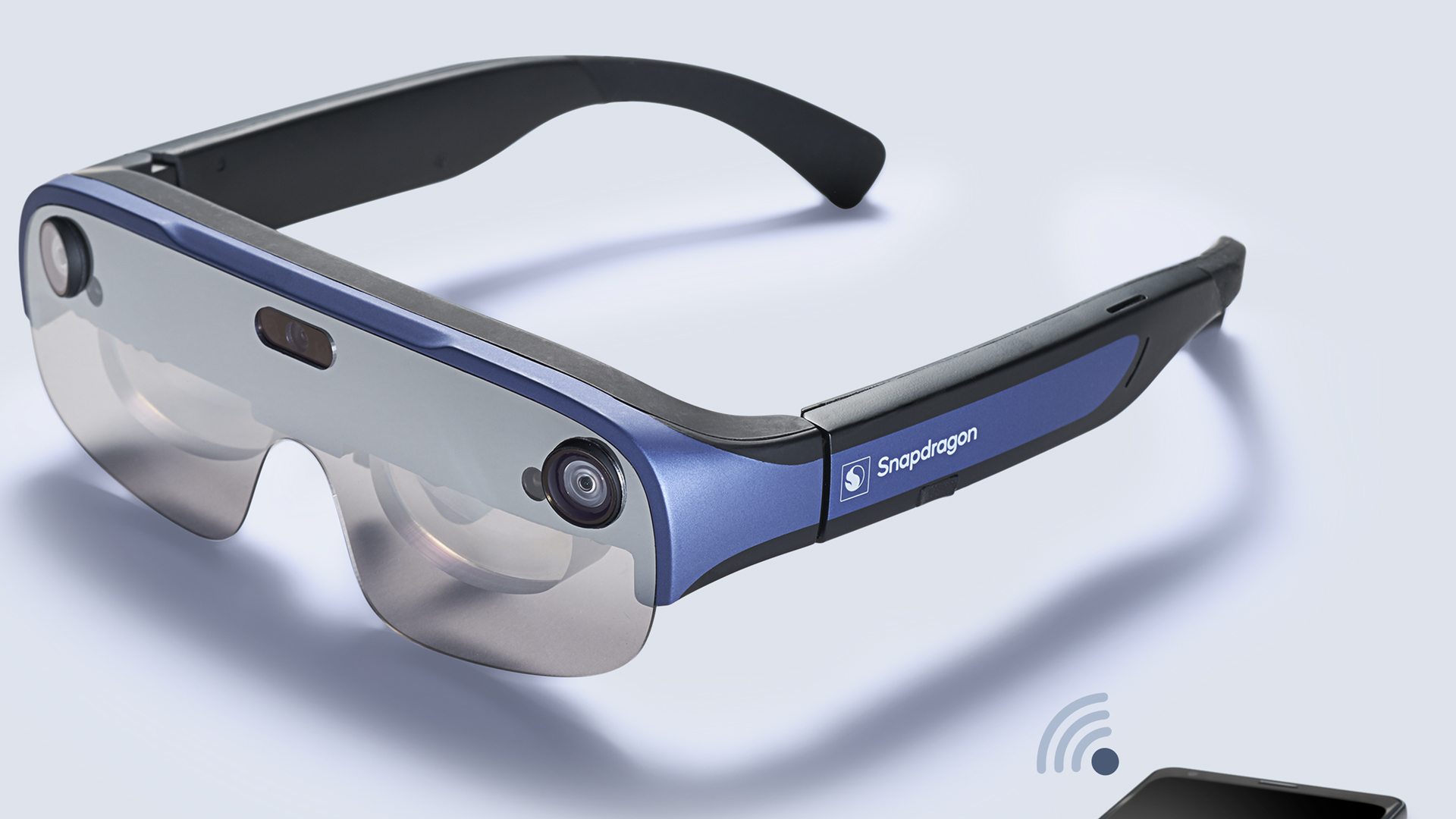Qualcomm revealed the latest rendition of its pair of augmented reality glasses, the awkwardly named Wireless AR Smart Viewer Reference Design.
This name will probably change when the glasses are officially launched as the Smart Viewer is currently still in the prototype stage. Previous iterations of the glasses had to be connected to a smartphone via USB cable. Over time, the design has been refined so that Smart Viewer is now wireless thanks to the FastConnect 6900 System.
It’s unknown just how much of the old software or user interface will make it onto the new Smart Viewer. An old trailer showed the Smart Viewer’s UI having floating menus decorated with popular apps and category tabs on the left-hand side. But Qualcomm did share some of the Smart Viewer’s new hardware.

Hardware specs
The glasses were designed by Chinese tech company Goertek, the same company working on the PSVR 2. Qualcomm claims that Goertek’s new design is 40 percent thinner than previous models and has a better weight balance for a more comfortable fit.
The lens themselves are a pair of micro-OLED screens that output at Full HD with a frame rate of 90Hz. Qualcomm specifically mentions the Smart Viewer lacks motion blur for “a seamless AR experience.” On the outside are three cameras, two monochrome with one color, that can track head and hand movements.
And all of this is powered by the Snapdragon XR2 Platform. Aside from the hardware, Qualcomm doesn’t say how much of the XR2 chipset will be present on the Smart Viewer. The curiosity is warranted. considering how much the XR2 can do: 5G connectivity, 8K video, and context awareness just to name a few.
New chipsets
The aforementioned FastConnect 6900 is a chipset that enables Wi-Fi 6/6E and supports Bluetooth 5.3. Qualcomm states the 6900 system can handle internet speeds up to 3.6 Gbps.
In the Smart Viewer, the 6900 will be paired up with the FastConnect XR Software Suite. Together, they are said to reduce latency and interference between the glasses and their connection.
No launch date or any information on the battery life has been provided. Although with so much going on, it’s difficult to imagine the Smart Viewer’s battery life to be all that long. It’ll be interesting to see the Smart Viewer in action when the time comes.
Alongside the Smart Viewer, Qualcomm also revealed an upgrade to its smartphone chipset, the Snapdragon 8+ Gen 1 mobile platform which the company claims has a 10 percent faster CPU.
Curious about what other VR headset companies are up to? Check out this update on Meta's Project Cambria.
Comments
Post a Comment